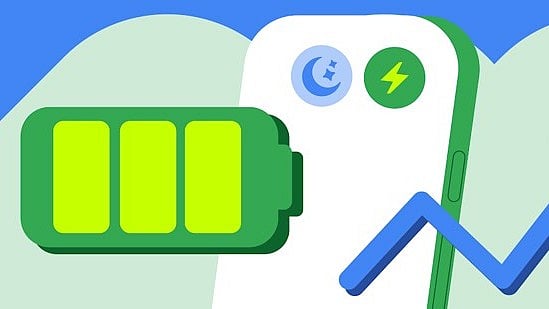
Google brings new algorithm to tag apps with battery draining issue.
Credit: Google
Over the last several years, smartphones have become powerful, almost on par with computers. They can handle graphics-heavy gaming titles and support advanced generative Artificial Intelligence applications, but users complain that smartphones, if relied on solely on cellular data for extended sessions, may not last until dinner time.
One known reason is that apps, even when not in use, can run in the background and drain the battery.
Now, Google, in collaboration with the world's leading smartphone maker, Samsung, has announced that they have formulated an algorithm that can pinpoint guilty apps that need to be restrained from consuming power when not in use.
With years of deep research, real-world insights into user experience with battery consumption with Android's platform data, the company has rolled out new refined vitals metrics to all developers in Android vitals.
Google Pixel 9.
Credit: DH Photo/KVN Rohit
Google and Samsung have defined a bad behaviour threshold for excessive wake locks, and apps should not go beyond that limit. If they do, the apps listed on the Google Play Store will be marked with a warning to the users that installing them on the phone may cause excessive battery draining issues.
For the uninitiated, wake locks are a mechanism in Android phones that allows the app to work when the display is on or off to finish a particular task. This is very important for functions such as wireless printing or transferring files between two phones with the display off.
Samsung Galaxy S24 Ultra.
Photo Credit: DH Photo/KVN Rohit
However, this has been misused by some apps to keep the CPU of the phone engaged even when not in use and causing draining of the battery to drain.
The bad behaviour threshold is said to be crossed when 5% of an app’s user sessions over the last 28 days are excessive.
Now, with a new threshold established, app developers have been told to improve the power consumption efficiency or else risk losing their reputation on the Google Play Store.
Google's warning to app having high background activity.
Credit: Google
The guilty apps will not only carry a warning (seen above), but also be dropped from Google's recommendation list.
A great user experience is built on a foundation of strong technical performance. We are committed to helping you create stable, responsive, and efficient apps that users love. Excessive battery drain is top of mind for your users, and together, we are taking significant steps to help you build more power-efficient appsGoogle
The app developers have been given four months to get their act together. The new rule is slated to take effect on March 1,2026.
Get the latest news on new launches, gadget reviews, apps, cybersecurity, and more on personal technology only on DH Tech.
